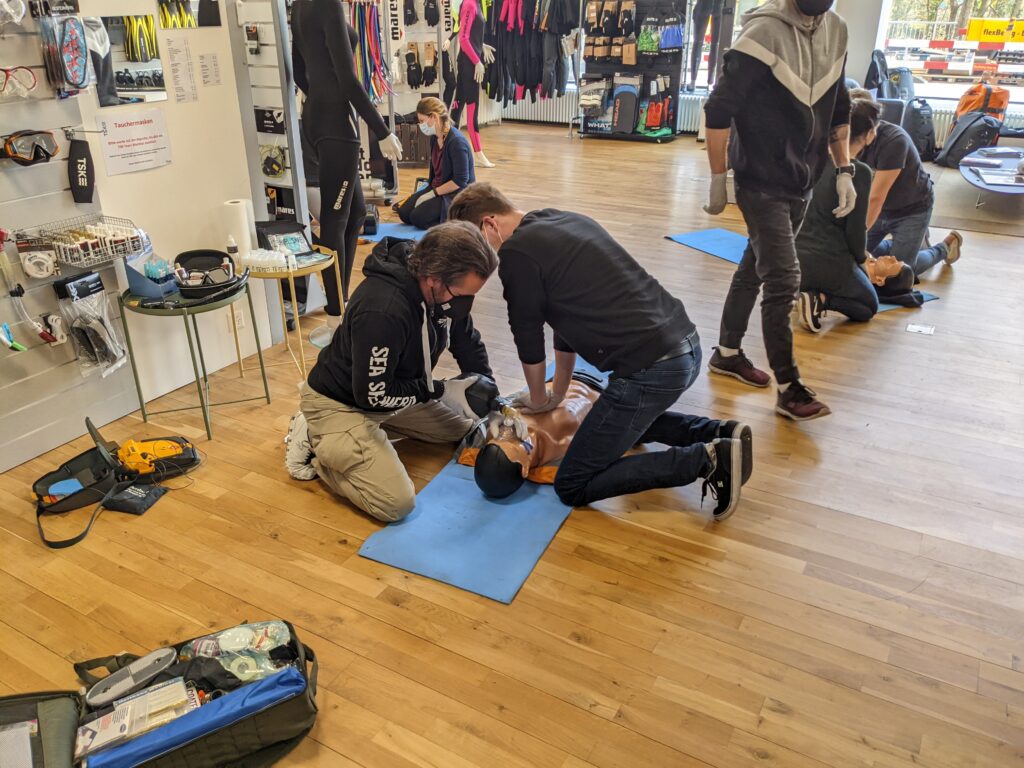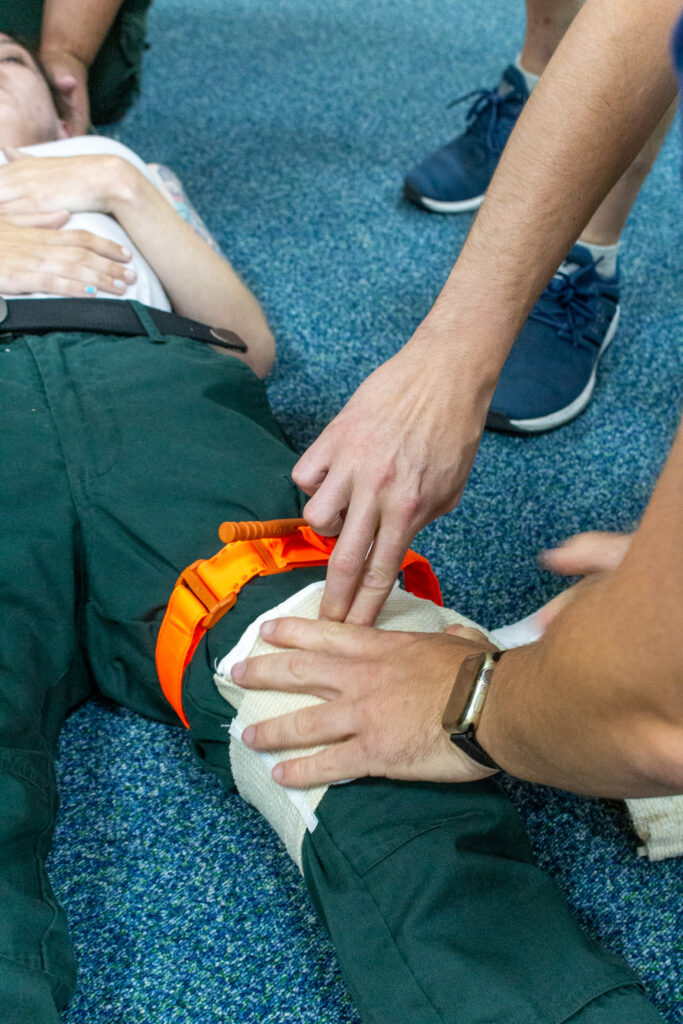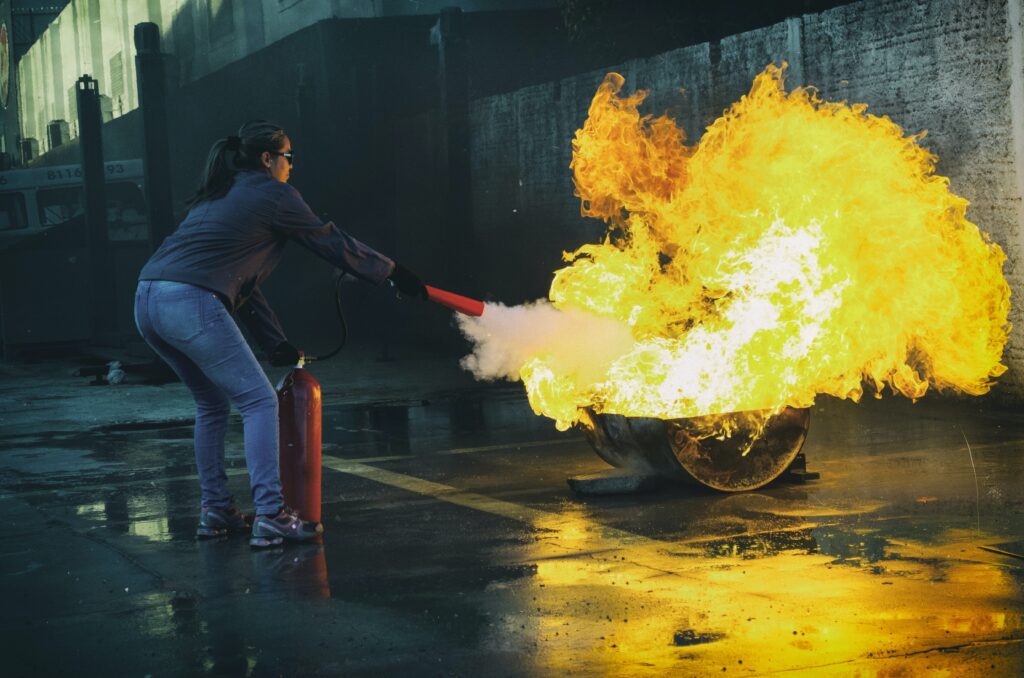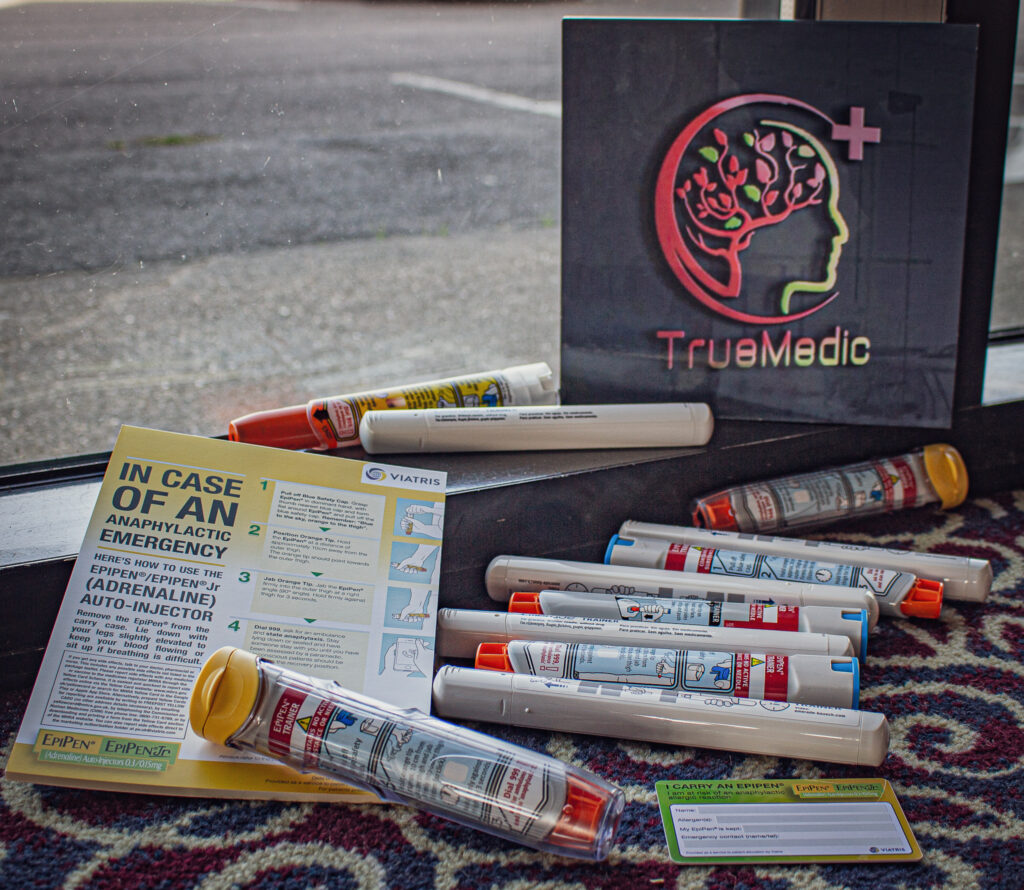The importance of having a good grasp on paediatrics first aid cannot be overstated when it comes to keeping children safe and secure. Whether you’re a parent, carer, or professional involved in caring for young people, paediatric first aid training is an essential part of your role.
Paediatric first aid is an important skill, allowing us to respond quickly and appropriately when a young person becomes unwell or injured. It’s more than just understanding what to do in a medical emergency. Having a basic knowledge of paediatrics first aid can also help prevent accidents from happening in the first place. This blog post will explore the importance of paediatrics first aid training, the steps to become more informed about this critical topic, and how TrueMedic Ltd can help.
Paediatric First Aid Training | A Basic Overview

Paediatric first aid training is essential for anyone who works with children, including parents, teachers, and other caregivers. Training in basic first aid practices can better equip those dealing with or around children to react in emergencies.
These courses commonly include learning how to diagnose and treat the most common ailments and injuries associated with children, such as choking and fractures.
Paediatric first aid also benefits families who want a head start in keeping their kids safe. It gives you the confidence to know what to do in any emergency, so you don’t panic and make things worse.
With an educative but fun curriculum explicitly designed for kids, paediatric first aid training can become invaluable for any parent or care provider looking out for their children’s welfare.
Paediatrics first aid is not just useful for medical emergencies. It can also be beneficial in everyday situations. Knowing how to act appropriately if a child falls can make all the difference in preventing further injury.
Most importantly, paediatric first aid training teaches adults to keep young people safe, maintain a calm atmosphere and ensure that the child(ren) receives the proper care. TrueMedic Ltd can provide all the necessary guidance to ensure you are well-prepared for any potential incident.
Who Should Take This Course?
Concerning your safety and the safety of those around you, it’s always beneficial to be aware of basic first aid procedures. Paediatric first aid training could prove invaluable if you are a parent, carer, or any other professional caring for young people, such as teachers or school administrators.
This course is for those who work with infants and children daily and must be up-to-date with the latest first-aid practices. Those who need to take this training include: [1]
- Nannies and babysitters
- Preschool, nursery, and primary school staff
- Parents
- Sport coaches
- Youth workers
- Childcare professionals
- Carers and Foster carers
To stay safe and be prepared to handle any medical emergency, you must get the proper childcare first aid training.
Learning And Assessment | What You’ll Get Out Of This Course
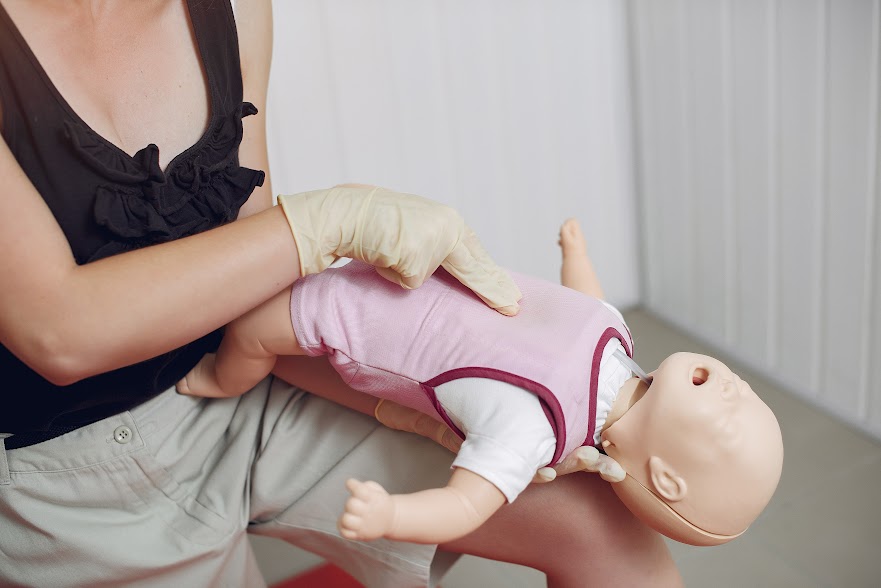
At TrueMedic Ltd, we offer a wide range of courses to help equip those looking after young people with the skills and knowledge necessary for dealing with any medical emergency. Our paediatric first aid training is crafted to ensure you have the correct understanding and confidence to act in a crisis.
With a comprehensive approach that covers all the fundamentals of first aid, our course will cover the following: [2]
1. Baby Choking
In this module, you’ll learn the basic techniques for dealing with a choking baby. This includes how to safely remove an object from their mouth and what action should be taken in case of more serious blockage.
2. Treat Minor Injuries
This course will teach you how to treat minor injuries common to young people, such as cuts and scrapes. This will include information on the different types of bandages available, basic wound dressing techniques, and appropriate sterilisation methods.
3. Diagnose Common Ailments
In this course, you’ll be introduced to the basics of diagnosing common ailments. It will include spotting signs of illnesses, monitoring temperature, and administering medications.
4. Child And Baby Resuscitation (CPR)
This module will teach the basics of resuscitating a baby or child in an emergency. It includes the techniques for performing cardiopulmonary resuscitation (CPR) and other specialised methods based on age and size.
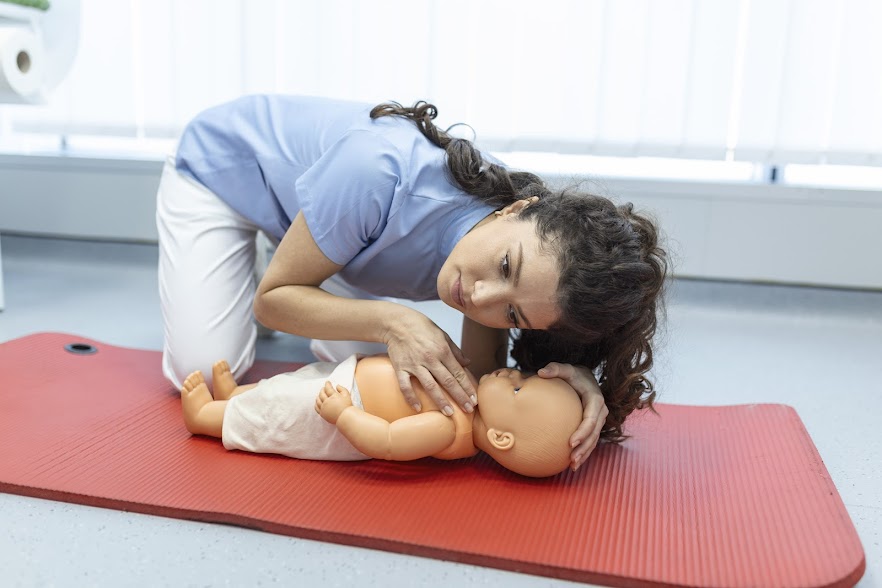
5. Communication And Casualty Care
In this course, you will learn to remain calm and effectively communicate with young people in an emergency. It includes showing empathy and understanding while providing the necessary care needed.
6. Eye Injuries
We also provide information on properly assessing and responding to eye injuries. It will include techniques for administering basic first aid for minor injuries and knowing when specialist treatment is necessary.
7. Poisons and Bites
This course will also cover dealing with potential insect poisoning and bites. It includes identifying different types of poisons and the correct action needed in such situations and administering anti-bacterial treatments for insect bites.
8. Asthma And Anaphylaxis
We also provide information on how to recognise the symptoms of Asthma or Anaphylaxis and what action should be taken. It includes administering inhalers and other treatments such as EpiPens and Adrenaline autoinjectors.
9. Unresponsiveness Of Baby
This course will also cover what actions to take when a baby is unresponsive or in a severe condition. It includes techniques for performing resuscitation, step-by-step instructions for checking vital signs, and how to transport the patient safely.
10. Head Injuries And First Aid
Finally, we also provide information on head injuries and the appropriate treatments. It includes recognising different types of head injury, administering basic first aid and knowing when more specialist help is needed.
By participating in our paediatric first aid training, you can gain the skills and knowledge necessary to help keep young people safe in any medical emergency while also learning how to remain calm and confident in such a situation.
Does This Course Provide Professional Certification?

You can do so if you seek a professional certification upon completing our paediatric first aid course. This course will lead to a nationally recognised qualification, and you will be issued a certificate for reference. [3]
TrueMedic Ltd provides other FREC and first aid courses with professional and certified qualifications. From paediatric first aid to more specialised medical courses, we at TrueMedic Ltd have you covered for all your medical training needs.
We guarantee that all participants will leave feeling knowledgeable and competent in the area of first aid. With our range of courses and detailed modules, you will indeed find a course suited to your requirements.
So why wait? Get your paediatric first aid training with TrueMedic Ltd today and start learning the basics of providing medical assistance and care to young people in emergencies! Contact us to learn more.
FAQs
1. What are the four key steps of paediatric first aid?
The four key steps of paediatric first aid are:
- Check the scene and the person
- Call for help or emergency services
- Provide any necessary care such as CPR, controlling bleeding, and administering medications.
- Complete a report after the incident.
2. What is the age for Paediatric first aid?
From infants to teenagers aged between 1-12 years. [4]
3. What is the duration of the Paediatric first aid course?
The duration of our paediatric first aid courses varies depending on the type of course but generally ranges from 2-3 days.
4. What are the benefits of doing a paediatric first aid course?
The benefits of doing a paediatric first aid course include gaining the confidence to respond effectively in an emergency, understanding safety protocols and being able to identify and treat common injuries. You will also gain a nationally recognised qualification upon completing the course.
References:
[2]https://www.sja.org.uk/courses/schools-first-aid/paediatric-first-aid-2-day/book-pfa2d/
[3]https://www.highspeedtraining.co.uk/courses/first-aid/paediatric-first-aid-training/


